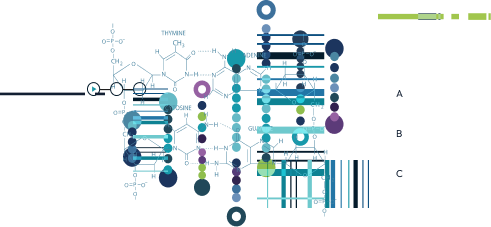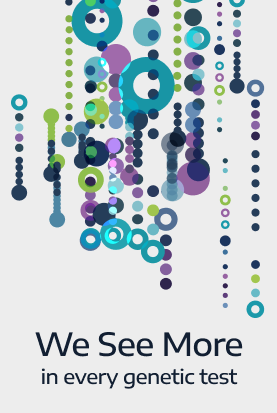We See More in Mitochondrial Disorders

All genetic tests for mitochondrial disorders are not equal. With our whole genome platform we see more. More variants, with greater resolution, all with one sample.
A genetic diagnosis can be life changing
An accurate genetic diagnosis enables the best possible medical management. Testing may:
- Inform prognosis
- Identify disorders with specific targeted treatments
- Identify treatments to stop or avoid
- Identify eligible clinical trials
- Inform family planning
- Connect families with support networks
Comprehensive testing requires analysis of both nuclear and mitochondrial genes
Mitochondrial disorders are a clinically heterogeneous group of conditions caused by dysfunction of the mitochondrial respiratory chain. Important mitochondrial mechanisms are controlled by both mitochondrial and nuclear genes. Each has its own unique testing requirements.
Mitochondrial DNA disorders
Pathogenic mitochondrial DNA variants, including small sequence changes and larger deletions, are a common cause of mitochondrial disorders1. Oftentimes the proportion of affected mitochondria within a cell is <100% (heteroplasmy).

Common panel and exome tests often exclude analysis of the mitochondrial genome or may be limited by low levels of heteroplasmy or an inability to detect larger deletions.
Nuclear mitochondrial DNA disorders
Sequence variants in nuclear genes, including small sequence changes as well as larger structural changes such as copy number variants (CNVs), can also impact mitochondrial function and cause mitochondrial disorders1.

Common panel and exome tests may be limited by the range of detection, missing smaller CNVs and complex structural variants like inversions.
Variantyx takes a unique approach to genetic testing for mitochondrial disorders
Variants detected by our targeted Genomic Unity® Comprehensive Mitochondrial Disorders Analysis include:
Our comprehensive analyses extend detection to >35 repeat expansion genes. View our complete mitochondrial disorders test portfolio.
More variants are revealed with greater resolution
Our whole genome platform has a detection range from 1bp to whole chromosomal events. Mitochondrial genome analysis is always available. As a result, our testing identifies variants missed by less comprehensive exome and panel tests – including mitochondrial small sequence variants (≥5% heteroplasmy) and deletions. The result is the most comprehensive testing possible, providing diagnoses for even the most elusive cases. Explore a representative example.
Learn more about our testing options
Ready to learn more?
Connect with a Clinical Specialist to find out how easy it is to bring the power of whole genome sequencing into your practice.


